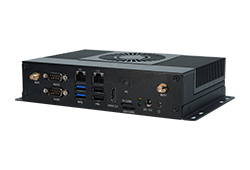Network IP configuration¶
Debian System Configuration¶
In Debian 9, eth0 in the dual network port defaults to obtain IP dynamically (that is, DHCP), and eth1 is fixed to 192.168.150.1.
The configuration of eth1 is done via the /etc/network/interfaces.d/eth1 file, which is the only modification to the original Debian network configuration.
linaro@bm1684:~$ cat /etc/network/interfaces.d/eth1
auto eth1
iface eth1 inet static
address 192.168.150.1
netmask 255.255.255.0
dns-nameservers 192.168.150.1
If the user deletes this file, then eth1 will become the same as eth0 to obtain the IP through DHCP; If the user wants to fix the IP of eth0, just create an eth0 file in the /etc/network/interafces.d folder, and it will take effect after restarting.
Note that it is best not to configure the two network cards as the same network segment, otherwise problems may occur.
Ubuntu System Configuration¶
In Ubuntu 20.04, the eth0 interface is set to obtain an IP address dynamically (DHCP), while eth1 is configured with a fixed IP address of 192.168.150.1.
The configuration for eth1 can be found in the /etc/netplan/01-netcfg.yaml file. You can modify this file to adjust the network settings for your Ubuntu system.
linaro@bm1684:~$ cat /etc/netplan/01-netcfg.yaml | more
network:
version: 2
renderer: networkd
ethernets:
eth1:
dhcp4: no
addresses: [192.168.150.1/24]
optional: yes
If the user deletes this file, then eth1 will revert to acquiring an IP address through DHCP, similar to eth0. If the user wants to assign a fixed IP address to eth0 as well, they only need to add an eth0 node (similar to eth1) in the /etc/netplan/01-netcfg.yaml file and then restart for the changes to take effect.
